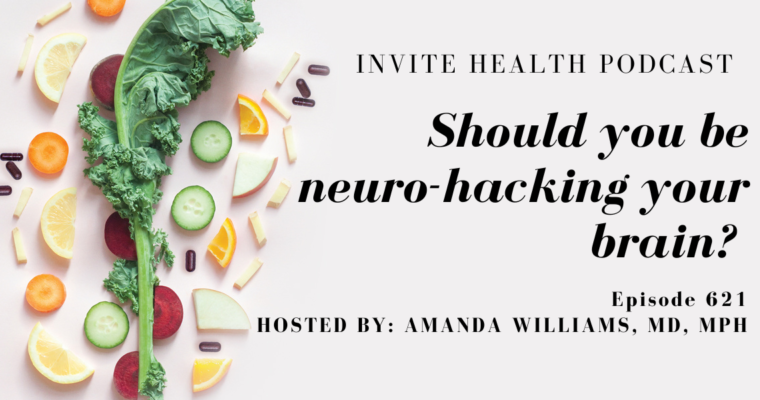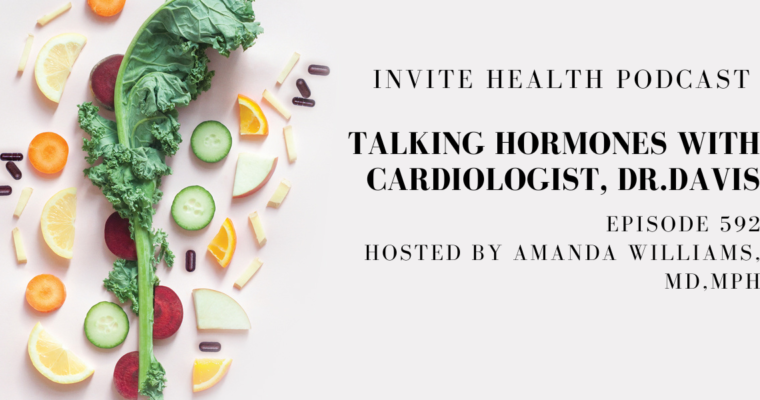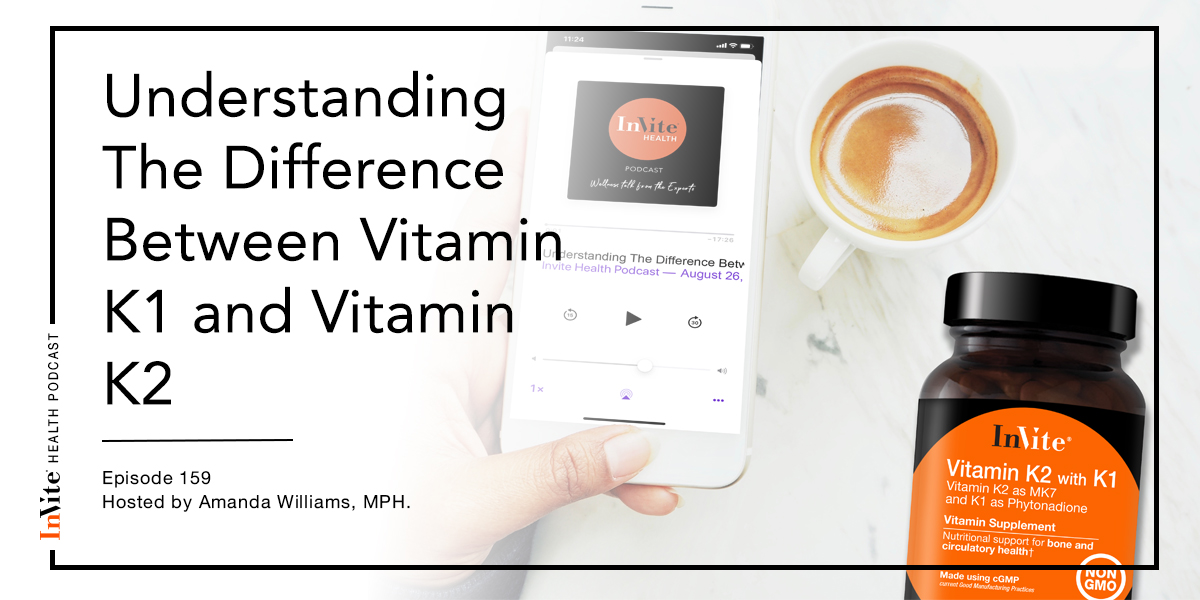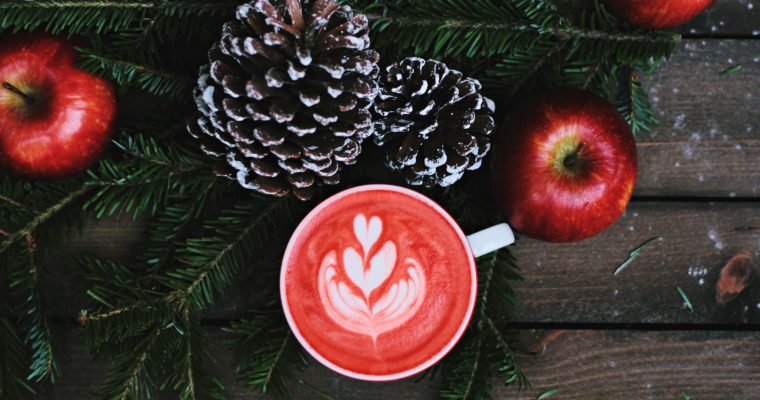Invite Health Podcast, Episode hosted by Amanda Williams, MPH.
Subscribe Today!
Most of us have heard about Vitamin K and may already correlate it with green, leafy vegetables. But what’s interesting is that oftentimes people are unaware that there are two forms of Vitamin K – Vitamin K1 and Vitamin K2. On today’s episode, we are going to talk about the difference between these two forms of the vitamin and the science behind how they are utilized by the human body.
Vitamin K1 and K2 Basics
Vitamin K1 participates in blood clotting, as it allows the body to properly allow for coagulation. High levels of Vitamin K1 can be found in food sources like green, leafy vegetables, grapes, plums and kidney beans.
Vitamin K2 is very important when it comes to maintaining bone density. For example, it is required for osteocalcin which is synthesized within the bone. Adequate amounts of this form of the vitamin is necessary for the matrix GLA protein, which is required in things like cartilage and blood vessels. High levels of Vitamin K2 can be found in food sources like egg yolks, natto, and cheese.

There are factors that can impact Vitamin K’s absorption:
- Prescription drugs and medications
- Certain diets that are low in fatty acids like omega-3s
- GI diseases that impact inflammation like Crohn’s disease
- Hormone replacement therapy
How to Build Bone, Even While You’re Sleeping! Listen Now >>
The Science Behind Vitamin K2
The University of Texas School of Pharmacology did a study that found, when participants incorporated Vitamin K2 into their routine, that it actually helped with more frequent/normal INR readings. INR is what doctors access when their patients are on a drug like Coumadin to make sure their blood is not too thin or too thick. The research found that, with the addition of K2, the participants had more normalization to their INR.
The Journal of Nutrition and Metabolism highlighted all of the scientific research showing just how important of a role Vitamin K2 is playing in the human body. They were specifically studied for arterial stiffness and vascular calcifications that can be driving up and intensifying problems within the cardiovascular system.
Questions about Vitamin K1 and Vitamin K2? Leave a comment for Amanda Williams, MPH below!
Thank you for tuning in to the Invite Health Podcast. You can find all of our episodes for free wherever you listen to podcasts or by visiting www.invitehealth.com/podcast. Make sure you subscribe and leave us a review! Follow us on Facebook, Twitter and Instagram at Invite Health today. We’ll see you next time on another episode of the Invite Health Podcast.








